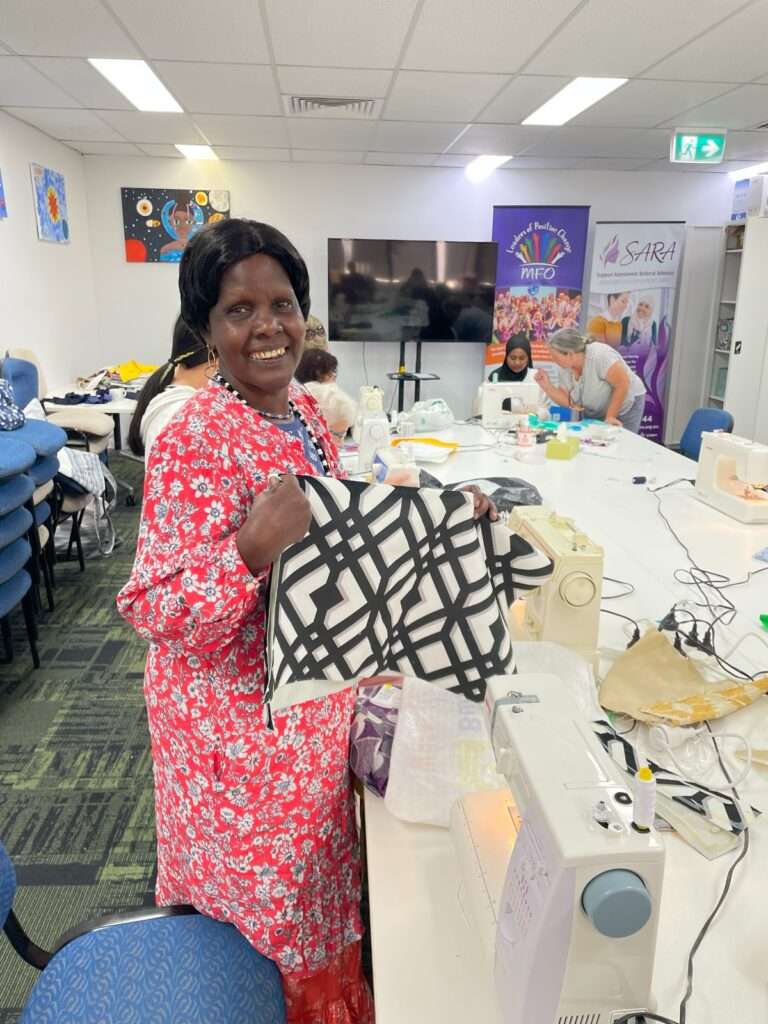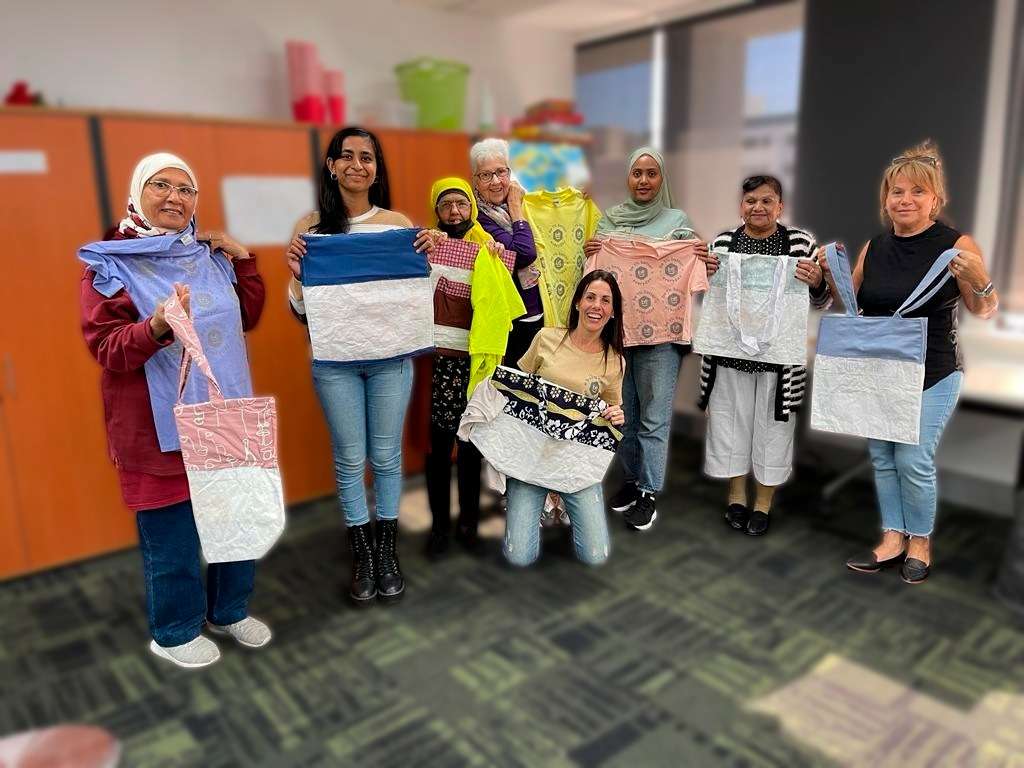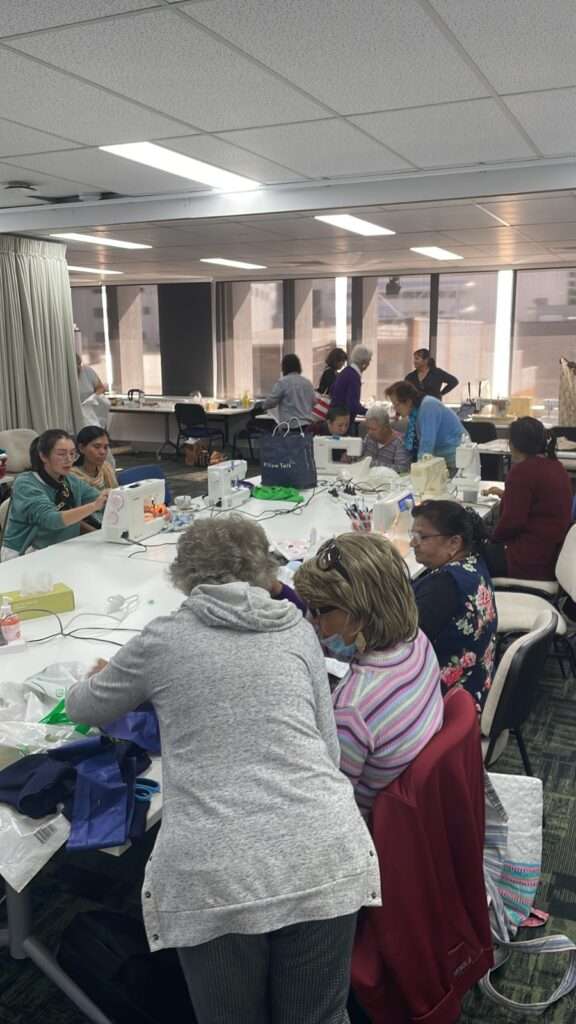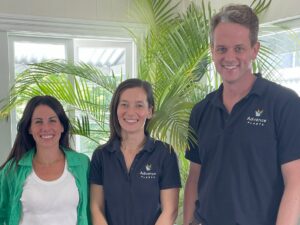See how a local brewery on the Gold Coast took impactful steps towards a social and positive green change.
Author: Belén Palkovsky
The journey of sustainability can begin at any time and any place. In this case, it started with a pile of 25kg grain bags destined for landfill, a used sewing machine, and an idea.
It all began when our co-founder, Francine, observed heaps of used grain bags at a Gold Coast brewery during a casual visit. This sight inspired a sustainable upcycling project that repurposed these bags into useful items, diverting waste from landfills and reducing the brewery’s carbon footprint. But no change is made alone. That’s why she needed to strategically join forces.
“I thought to myself: ‘I need to find leftover fabric. I need a seamstress to make a few samples – and I need to join forces with a local organisation.’ And just like that – turning used plastic grain bags into an upcycling project was about to become a reality!”
I managed to source some quality leftover fabric from a local store for free—fabric that would have ended up in landfill! Perfect for my prototype, which a friend’s mum was willing to whip up on her Singer. Then I was lucky enough to meet the most wonderful group of women from MFO—Multicultural Families Organisation—and we teamed up to start a sewing group,” Francine tells us about the development of the project.
Multicultural Families Organisation (MFO) supports culturally and linguistically diverse migrant families on the Gold Coast. This non-profit organisation is dedicated to facilitating the integration of immigrants into their new communities, providing a variety of services including language classes, employment assistance, and cultural exchange programs. MFO also helps create economic opportunities and promotes sustainable projects that benefit both individuals and the broader community. You can read more about them here!
An Upcycling and Circular Economy Project
This partnership was rooted in the principle of upcycling, transforming waste materials into new products. Unlike recycling, which often downgrades the quality of the original material, upcycling enhances it, creating higher-quality or different-use items without the need for new raw materials. This significantly reduces energy consumption, water, waste, and costs.
This initiative quickly gained traction as the partners collaborated to repurpose the bags, and the project expanded as more machines were donated to meet the growing enthusiasm and scale of production.
Can you believe that more than 100 bags have already been made?
This project successfully keeps leftover fabrics out of landfills and helps a local brewery reduce the amount of waste they produce, which in turn reduces plastic and CO2 emissions!
And what started as a quick insight goes even further—the sewing group has become a place for women to connect, create, and share special skills. This project has empowered multicultural families and strengthened the local community.
Here’s how this initiative helped the brewery report and amplify its impact to support global sustainability agendas:
Carbon Reduction: By upcycling used grain bags instead of discarding them, the brewery reduced its carbon footprint, decreasing the greenhouse gas emissions associated with disposal.
Sustainability Reporting: Engaging in upcycling projects allowed the brewery to showcase its commitment to sustainability in tangible ways. This was highlighted in Environmental, Social, and Governance (ESG) reports.
Alignment with SDGs: This project has contributed to several Sustainable Development Goals (SDGs), including achieving gender equality and empowering women (SDG 8), responsible consumption and production (SDG 12), and climate action (SDG 13).
Social Impact: The collaboration with local organisations like the Multicultural Families Organisation to carry out the upcycling not only provided social benefits but also strengthened community ties. This social impact can be an essential part of your sustainability reports, demonstrating how your business supports social equity and community development.
Circular Economy Integration: By adopting circular economy principles, the brewery moved beyond traditional linear waste management and recycling, instead creating a closed-loop system where materials are reused again and again.
So, if you also have a business and are inspired to join the sustainability journey, we have four pieces of advice:
Start small: Begin with manageable projects, such as reducing waste or improving recycling practices.
Connect with your community: Look for opportunities to involve local organisations or non-profits, which can provide both support and a platform for wider impact.
Measure your impact, before and after: Keep track of the changes and improvements made, as this data can be motivating and informative for future decisions.
Communicate to the public: Share your goals, processes, and achievements with your customers and stakeholders. Transparency builds trust and enhances your business reputation.
Count on Conexus.Earth! We are here to guide you. Just get in touch, and we will be happy to contribute to the enhancement of your business practices.
Stay informed, make a difference!
Join us in our mission for a sustainable future. Acess our insights and subscribe to our newsletter and stay up-to-date with the latest sustainability news, tips, and trends. Together, let’s create a green and social economy for all.





